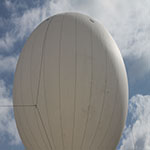Euroacademia Conferences
 Europe Inside-Out: Europe and Europeanness Exposed to Plural Observers (9th Edition) April 24 - 25, 2020
Europe Inside-Out: Europe and Europeanness Exposed to Plural Observers (9th Edition) April 24 - 25, 2020 Identities and Identifications: Politicized Uses of Collective Identities (9th Edition) June 12 - 13, 2020
Identities and Identifications: Politicized Uses of Collective Identities (9th Edition) June 12 - 13, 2020 8th Forum of Critical Studies: Asking Big Questions Again January 24 - 25, 2020
8th Forum of Critical Studies: Asking Big Questions Again January 24 - 25, 2020 Re-Inventing Eastern Europe (7th Edition) December 13 - 14, 2019
Re-Inventing Eastern Europe (7th Edition) December 13 - 14, 2019 The European Union and the Politicization of Europe (8th Edition) October 25 - 26, 2019
The European Union and the Politicization of Europe (8th Edition) October 25 - 26, 2019 Identities and Identifications: Politicized Uses of Collective Identities (8th Edition) June 28 - 29, 2019
Identities and Identifications: Politicized Uses of Collective Identities (8th Edition) June 28 - 29, 2019 The European Union and the Politicization of Europe (7th Edition) January 25 - 26, 2019
The European Union and the Politicization of Europe (7th Edition) January 25 - 26, 2019 7th Forum of Critical Studies: Asking Big Questions Again November 23 - 24, 2018
7th Forum of Critical Studies: Asking Big Questions Again November 23 - 24, 2018 Europe Inside-Out: Europe and Europeanness Exposed to Plural Observers (8th Edition) September 28 - 30, 2018
Europe Inside-Out: Europe and Europeanness Exposed to Plural Observers (8th Edition) September 28 - 30, 2018 Identities and Identifications: Politicized Uses of Collective Identities (7th Edition) June 14 - 15, 2018
Identities and Identifications: Politicized Uses of Collective Identities (7th Edition) June 14 - 15, 2018
Voices from the (Semi)Peripheries: East and Central European Debates on European Identity
-
-

-
Presentation speakers
- Adam Kola, Nicolaus Copernicus University, Poland
Abstract:
‘When you are in the family … you have more rights than when you are asking to join and knocking on the door’, said French President Jacques Chirac in February 2003. It was before the biggest enlargement of the European Community in 2004, and on the discussion stage with other countries, like Romania and Bulgaria. He added: ‘They missed a great opportunity to shut up’. In this paper I provocatively started with this quotation, whereas I would like to focus seriously on ‘(semi?)peripheral viewpoints’ especially from Poland, Czech and post-Yugoslav states on the discussion on European identity. I will examine all concepts going beyond the simplified schemes of Greek-Roman-Christian trinity and I will follow the conviction that (semi)peripheral Europe(s) offer(s) a more innovative and creative opinion about Europe itself. The aim of the paper is to provide a survey of East and Central European literature (academic, political, belles-lettres) and to point out the most interesting approaches. In this paper the following intellectuals-migrants will be taken into consideration: Leszek Kolakowski, Krzysztof Pomian, Dubravka Ugresic and Jan Zielonka, or even pope John Paul II, etc. though, we could find interesting voices from non-emigrants, like e.g. Karol Modzelewski or Václav Havel, etc. This (semi)peripheral Europe can offer courageous solutions in the process of building European community not as an exclusive but inclusive model. Let’s look back into (semi)peripheral histories to find voices of the marginalized and to find new Europe. -
Related Presentations

Between Propaganda and Cultural Diplomacy: Nostalgia towards Socialist Realism in Post-Communist Bulgaria
- Nina Pancheva-Kirkova

The Role of Art in Diplomacy and State’s International Representation in Latvia (1918–1940)
- Ginta Gerharde-Upeniece
















